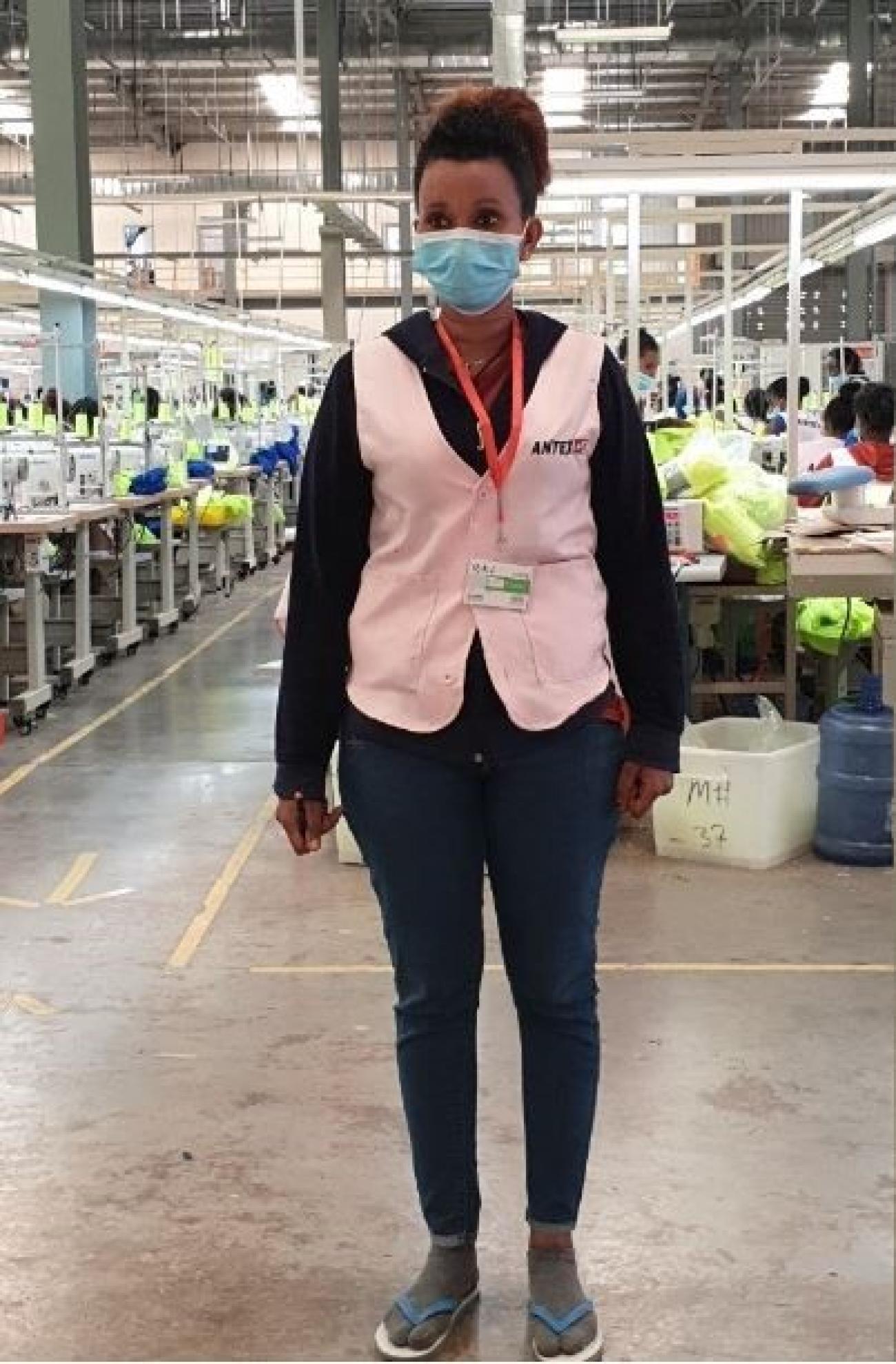Achieving an equal future during COVID-19: women in the garment and textile industry

The garment and textile industry is one of the sectors hit hard by COVID-19, affecting thousands of factory workers.
The garment and textile industry is one of the sectors hit hard by COVID-19, affecting thousands of factory workers. As the industry slowly reopens, the ILO Siraye programme continues to deliver its programme interventions and reach more female workers to achieve its objectives focusing on gender.
Alemeshet is an operator in the cutting section at one of the garment and textile factories in Ethiopia. She is one of the thousands of women workers who dominate the industry. For many women like Alemeshet, the garment and textile industry provides the first ever formal job, as women mainly from rural areas migrate to areas that house industrial parks in search of jobs. The garment and textile industry employees are overwhelmingly young women (in some cases almost 90% of the factory workforce) from the rural areas. Most of the women workers are not only new to formal employment but also to the working and living conditions of their new regions or locations.
While making up the majority of the workforce in sector, women are often underrepresented in the leadership structures and in the management of garment factories. Beyond wages, women face additional gender-specific barriers including limited access to training opportunities and childcare solutions.
The ‘Siraye’ programme on advancing decent work and inclusive industrialization is a coordinated ILO programme with an overarching development goal to see improved respect of workers’ rights leading to greater incomes and compensation, enhanced safety, equality, voice, and representation. The programme also aims to lift industrial productivity and competitiveness to enable a global competitive textile and garment sector and encourages accountable and transparent government institutions.
The programme is committed to promoting gender equality and women's economic empowerment in the garment industry. As such, the programme works on capacity development by providing workers and managers various trainings that help bring women to leadership position.
Alemeshet is one of the participants that recently concluded the sexual harassment and prevention training provided by the programme.
“Before the training, I had very limited understanding of what constitute sexual harassment, its forms and what measures I need to take if incidents of sexual harassment occur in and outside of work,” Alemeshet said.
For many female workers in the industry, sexual harassment incidents are often unreported in fear of losing job and facing backlash. Recognizing the need to equip workers with the right information and grievance handling mechanism, the ILO ‘Siraye’ programme launched the training on sexual harassment and prevention in registered factory. To date, over 38 factories across three regions of Ethiopia (Addis Ababa, Oromia and Hawassa) have registered with the Siraye programme.
“Whenever I face unwelcome conduct of sexual nature, I used to think it was because of the way I dressed or behaved so I was conscious not to attract any attention,” recalls Alemshet. “I am very happy that I received this training. I now understand that it is not my fault, and I know how to protect myself from unwelcome behaviours.”
In addition to providing training on sexual harassment and prevention, the ILO Siraye programme also provides training that help female worker move up the career ladder through soft skill and supervisory training.
“It is very important for female workers, especially at the operator level to receive this training as they are often exposed to various forms of sexual harassment,” Alemeshet said.
Alemeshet is currently working as an operator and hopes to progress to a more managerial role in the future.


